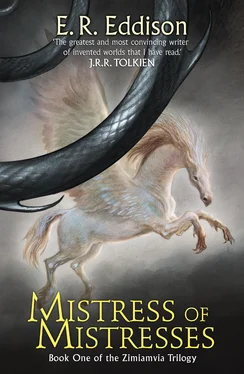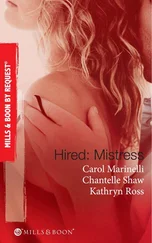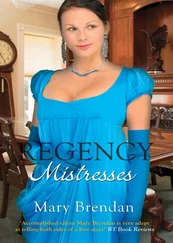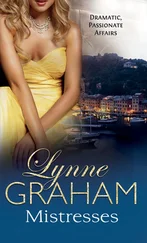1 ...6 7 8 10 11 12 ...22 ‘Well,’ said Lessingham, ‘I have listened most obediently. You have it fully: there’s not a word to which I take exceptions. Nay I admire it all, for indeed I told you every word of it myself last night.’
‘Then would to heaven you’d be advised by’t,’ said Amaury. ‘Too much light, I think, hath made you moon-eyed.’
‘Reach me the map,’ said Lessingham. For the instant there was a touch in the soft bantering music of his voice as if a blade had glinted out and in again to its velvet scabbard. Amaury spread out the parchment on the table, and they stood poring over it. ‘You are a wiser man in action, Amaury, in natural and present, than in conceit; standing still, stirs your gall up: makes you see bugs and hobthrushes round every corner. Am I yet to teach you I may securely dare what no man thinks I would dare, which so by hardness becometh easy?’
Lessingham laid his forefinger on this place and that while he talked. ‘Here lieth young Styllis with’s main head of men, a league or more be-east of Hornmere. ’Tis thither he hath required the Vicar come to him to do homage of this realm of Rerek, and to lay in his hands the keys of Kessarey, Megra, Kaima, and Argyanna, in which the King will set his own captains now. Which once accomplished, he hath him harmless (so long, at least, as Barganax keep him at arm’s length); for in the south there they of the March openly disaffect him and incline to Barganax, whose power also even in this northern ambit stands entrenched in’s friendship with Prince Ercles and with Aramond, spite of all supposed alliances, respects, and means, which bind ’em tributary to the Vicar.
‘But now to the point of action; for ’tis needful you should know, since we must move north by great marches, and that this very night. My noble cousin these three weeks past hath, whiles he amused the King with’s chaffer-talk of how and wherefore, opened unseen a dozen sluices to let flow to him in Owldale men and instruments of war, armed with which strong arguments (I have it by sure intelligence but last night) he means tomorrow to obey the King’s summons beside Hornmere. And, for a last point of logic, in case there be falling out between the great men and work no more for learned doctors but for bloody martialists, I am to seize the coast-way ’twixt the Swaleback fells and Arrowfirth and deny ’em the road home to Fingiswold.’
‘Deny him the road home?’ said Amaury. ‘’Tis war, then, and flat rebellion?’
‘That’s as the King shall choose. And so, Amaury, about it straight. We must saddle an hour before midnight.’
Amaury drew in his breath and straightened his back. ‘An hour to pack the stuff and set all in marching trim: and an hour before midnight your horse is at the door.’ With that, he was gone.
Lessingham scanned the map for yet a little while, then let it roll itself up. He went to the window and threw it open. There was the breath of spring in the air and daffodil scents: Sirius hung low in the south-west.
‘Order is ta’en according to your command,’ said Amaury suddenly at his side. ‘And now, while yet is time to talk and consider, will you give me leave to speak?’
‘I thought you had spoke already,’ said Lessingham, still at the window, looking round at him. ‘Was all that but the theme given out, and I must now hear point counterpoint?’
‘Give me your sober ear, my lord, but for two minutes together. You know I am yours, were you bound for the slimy strand of Acheron. Do but consider; I think you are in some bad ecstasy. This is worse than all: cut the lines of the King’s communications northward, in the post of main danger, with so little a force, and Ercles on your flank ready to stoop at us from his high castle of Eldir and fling us into the sea.’
‘That’s provided for,’ said Lessingham: ‘he’s made friends with as for this time. Besides, he and Aramond are the Duke’s dogs, not the King’s; ’tis Meszria, Zayana, all their strings hold unto; north winds bring ’em the cough o’ the lungs. Fear not them.’
Amaury came and leaned himself too on the window-sill, his left elbow touching Lessingham’s. After a while he said, low and as if the words were stones loosed up one by one with difficulty from a stiff clay soil, ‘’Fore heaven, I must love you; and it is a thing not to be borne that your greatness should be made but this man’s cat’s-paw.’
Sirius, swinging lower, touched the highest tracery of a tall ash-tree, went out like a blown-out candle behind a branch, and next instant blazed again, a quintessential point of diamond and sapphire and emerald and amethyst and dazzling whiteness. Lessingham answered in a like low tone, meditatively, but his words came light on an easy breath: ‘My cousin. He is meat and drink to me. I must have danger.’
They abode silent at that window, drinking those airs more potent than wine, and watching, with a deep compulsive sense of essence drawn to essence, that star’s shimmer of many-coloured fires against the velvet bosom of the dark; which things drew and compelled their beings, as might the sweet breathing nearness of a woman lovely beyond perfection and deeply beyond all soundings desired. Lessingham began to say slowly, ‘That was a strange trick of thought when I forgot you but now, and forgot my own self too, in those bubbles which in their flying upward signify not as the sparks, but that man is born for gladness. For I thought there was a voice spake in my ear in that moment and I thought it said, I have promised and I will perform . And I thought it was familiar to me beyond all familiar dear lost things. And yet ’tis a voice I swear I never heard before. And like a star-gleam, it was gone.’
The gentle night seemed to turn in her sleep. A faint drumming, as of horse-hooves far away, came from the south. Amaury stood up, walked over to the table, and fell to looking at the map again. The beating of hooves came louder, then on a sudden faint again. Lessingham said from the window, ‘There’s one rideth hastily. Now a cometh down to the ford in Killary Bottom, and that’s why we lose the sound for awhile. Be his answers never so good, let him not pass nor return, but bring him to me.’
PORTRAIT OF A LADY • DOCTOR VANDERMAST • FIORINDA: ‘BITTER-SWEET’ • THE LYRE THAT SHOOK MITYLENE
THE third morning after that coming of the galloping horseman north to Mornagay, Duke Barganax was painting in his privy garden in Zayana in the southland: that garden where it is everlasting afternoon. There the low sun, swinging a level course at about that pitch which Antares reaches at his highest southing in an English May-night, filled the soft air with atomies of sublimated gold, wherein all seen things became, where the beams touched them, golden: a golden sheen on the lake’s unruffled waters beyond the parapet, gold burning in the young foliage of the oak-woods that clothed the circling hills; and, in the garden, fruits of red and yellow gold hanging in the gold-spun leafy darkness of the strawberry-trees, a gilding shimmer of it in the stone of the carven bench, a gilding of every tiny blade on the shaven lawn, a glow to deepen all colours and to ripen every sweetness: gold faintly warming the proud pallour of Fiorinda’s brow and cheek, and thrown back in sudden gleams from the jet-black smoothnesses of her hair.
‘Would you be ageless and deathless for ever, madam, were you given that choice?’ said the Duke, scraping away for the third time the colour with which he had striven to match, for the third time unsuccessfully, the unearthly green of that lady’s eyes.
‘I am this already,’ answered she with unconcern.
‘Are you so? By what assurance?’
‘By this most learn’d philosopher’s, Doctor Vandermast.’
Читать дальше












